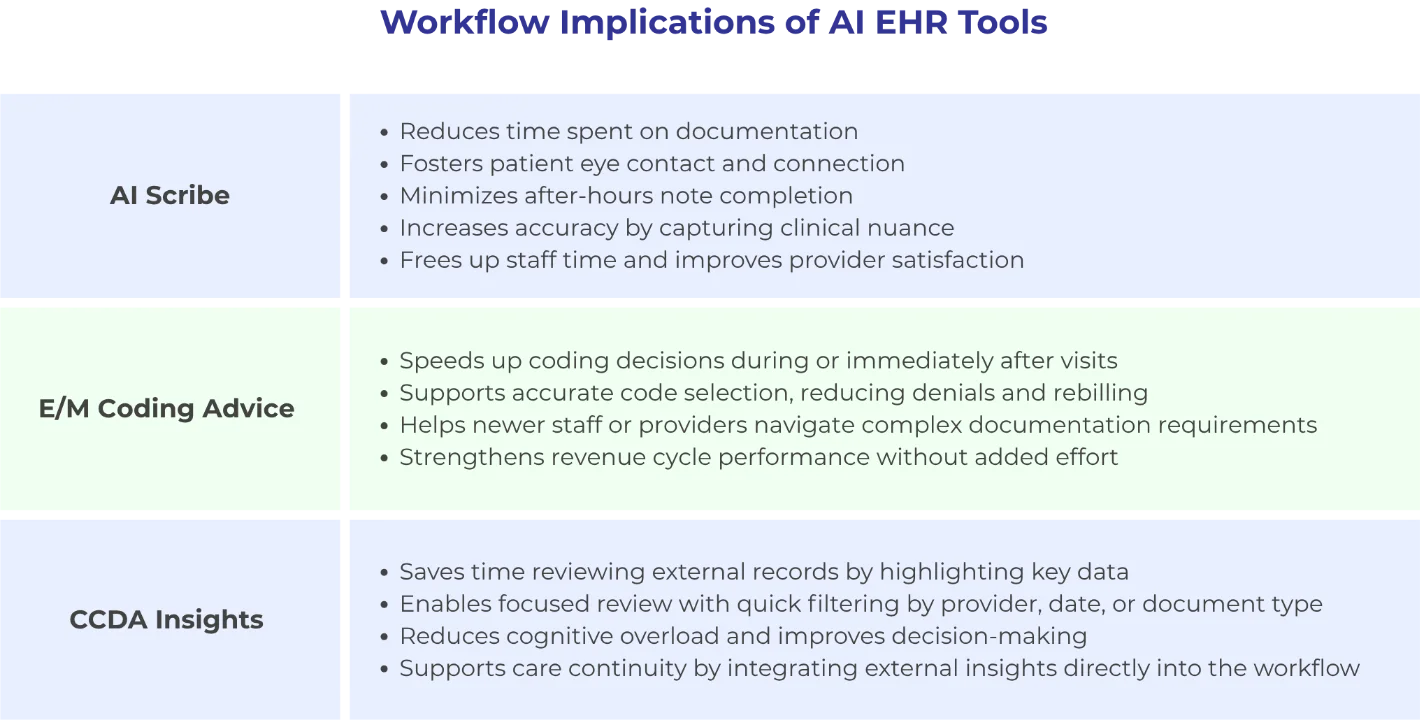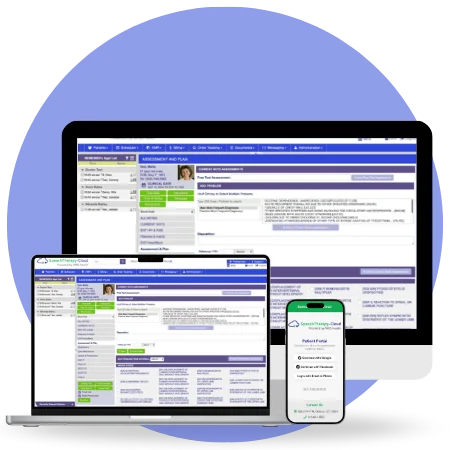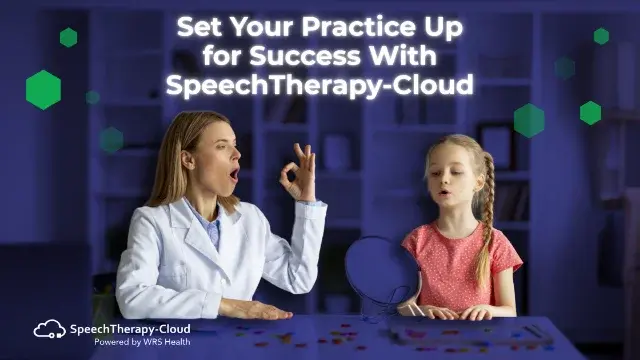Key Takeaways
- AI tools in speech therapy EHRs reduce manual charting and improve documentation accuracy.
- Automation streamlines session notes, progress tracking, and insurance billing, giving SLPs more time with patients.
- Better interoperability and data insights support collaborative care and outcomes tracking.
- Learn how easy it can be to switch to the right EHR with the right vendor.
For speech-language pathologists (SLPs), the work is both clinical and creative—individualized treatment plans, ongoing progress evaluations, and meaningful patient connection are all part of the job. And when documentation, reporting, and billing consume more time than patient care, it’s easy to feel overwhelmed.
Enter the next generation of speech therapy EHR systems—powered by artificial intelligence (AI). Smart tools are changing how SLPs manage their documentation, track outcomes, and run efficient practices. Whether you’re working with pediatric patients, adults, or mixed caseloads, automation and AI can help reduce burnout and elevate your care.
This is how AI is transforming the way modern speech therapy practices operate and why it might be time to expect more from your EHR.
Table of Contents
Smarter Documentation With Less Effort
Speech therapy documentation is among the most nuanced in healthcare. Each session can include multiple targeted goals, unique cueing strategies, in-depth patient responses, and behavioral notes. It’s no surprise that manual charting is a top source of frustration for SLPs.
AI tools streamline this process by using:
- Natural Language Processing (NLP) to convert session dialogue or clinician dictation into structured, editable notes.
- Auto-suggestions for goals, cueing methods, and progress descriptors based on previous entries or standard SLP frameworks.
- Customizable templates that adjust dynamically depending on diagnosis or therapy setting.
Instead of spending hours documenting after sessions or relying on generic drop-downs, SLPs can complete detailed notes faster, with fewer clicks, and more confidence in their accuracy.
Automation in Speech-Language Pathology Workflows
Administrative tasks like appointment reminders, billing prep, or session note compliance checks can be handled automatically by AI-enabled EHR tools. It functions seamlessly in the background—automating routine tasks without disruption.
Modern EHR platforms for speech therapy automate:
- Insurance verification and eligibility checks before sessions begin.
- Real-time code recommendations tied to your documentation.
- Automated alerts for progress note deadlines or incomplete treatment plans.
- Session-to-session continuity, pulling forward relevant goals and outcomes for quick review.
These automation features save time and help prevent missed billings, reduce rework, and keep the clinical team on track.
Improved Interoperability Means Stronger Collaboration
SLPs often work as part of a broader care team, including occupational therapists, physical therapists, behavioral health specialists, and pediatricians. And when EHR systems don’t communicate well, the flow of information becomes fragmented.
AI-enhanced EHRs are closing these gaps by:
- Supporting FHIR and HL7 interoperability standards to improve data exchange across platforms.
- Automatically extracting and organizing relevant info from referrals, external notes, or hospital discharges.
- Flagging missing or inconsistent data points in shared records to avoid delays in treatment or insurance approvals.
Better interoperability means better-coordinated care—and better outcomes for patients with complex needs.

AI Aims to Support Clinicians, Not Replace Them
The idea of AI in healthcare sometimes raises concerns about losing the human element. In speech therapy, where clinician expertise and patient rapport are everything, this concern is especially valid.
The best AI tools for SLPs don’t replace what you do—they help you do it more effectively. With less time spent on data entry and redundant tasks, clinicians can:
- Focus on customizing treatment plans
- Spend more time interacting with patients
- Track long-term outcomes with more reliable data
- Monitor progress benchmarks that support clinical and practice growth
And for practices facing staffing constraints or high caseloads, AI-enabled systems help make workloads manageable without sacrificing care quality.
A Better Future for SLPs Starts With Better Systems
SLPs are essential to care teams for patients working toward improved communication outcomes—but they can’t do their best work if they’re bogged down by outdated systems. A smart, AI-powered speech therapy EHR helps your team reclaim time, reduce stress, and focus on what really matters.
By embracing automation and modern design, practices can improve documentation accuracy, strengthen interdisciplinary collaboration, and build a more sustainable workflow for clinicians and staff.
For speech therapy practices ready to evolve, AI is here to help. Rather than viewing it as a distant concept, the time is now to determine how intentional tech integrations can change how your practice operates. Ready to bring calm to your workflow? Let AI reduce daily friction so you can prioritize patient care.










